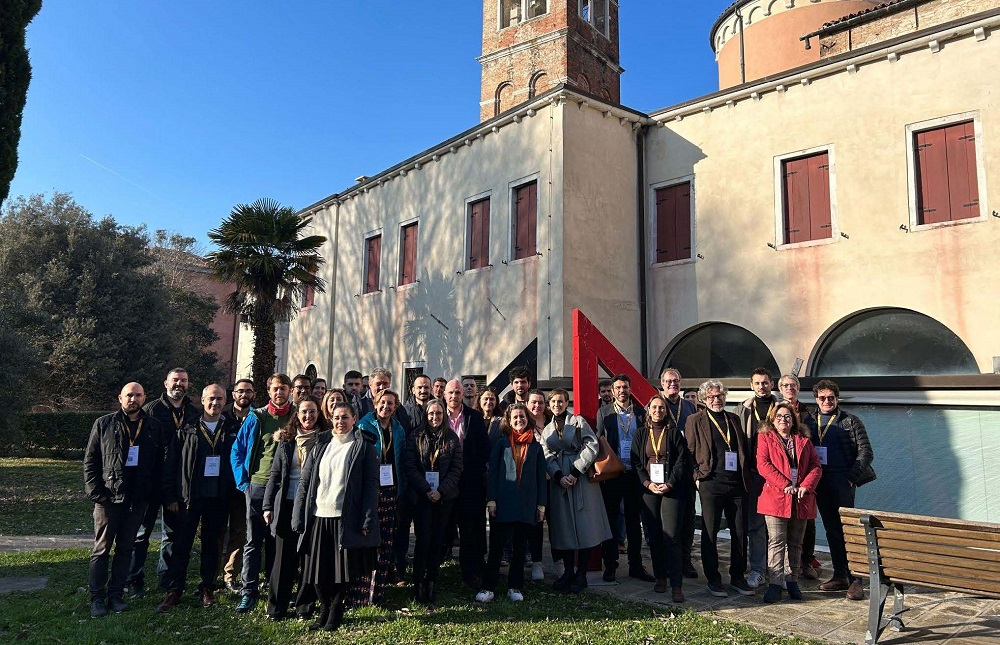PLANET4Health is launched, a European project that wants to translate science into policies to improve planetary health
PLANET4Health is launched, a European project that wants to translate science into policies to improve planetary health
PLANET4Health is launched, a European project that wants to translate science into policies to improve planetary health
The project, formed by a consortium of research centers and universities, including UPF, will provide crucial information on the impact of environmental degradation on human, animal and ecosystem health. The results of PLANET4Health, with John Palmer as principal investigator at UPF, will drive sustainable planetary health policies, with input from multiple sectors.

The european research project "Translating Science into Policy: A Multisectorial Approach to Adaptation and Mitigation of Adverse Effects of Vector-Borne Diseases, Environmental Pollution and Climate. Change on Planetary Health"", known as PLANET4Health, with the participation of UPF, has recently been launched.
Funded by the European Union, and in the framework of the Horizon Europe Health program, within the Research and Innovation Actions (RIA), the project made its official launch at a meeting of all the members that are part of it.
Comprising a consortium of 17 members from 12 countries, PLANET4Health has a dynamic network of experts spanning disciplines such as environmental and climate sciences, public health, epidemiology, veterinary medicine, social sciences, politics and economics, engineering and technology development, law, ethics, and communication.
John Palmer: "In PLANET4Health, I am investigating the ways in which climate change is shaping patterns of human mobility and exposure to mosquito-born"
The consortium officially launched the project during a kick-off meeting held in Venice on January 25-26, organized by Universita Ca' Foscari Venezia, the coordinating university. This meeting marked the beginning of this ambitious effort to address planetary health challenges through collaborative action.
At UPF, the only university in Spain that is part of the consortium, the principal investigator of the project is John Palmer, a member of the Sociodemography Research Group (DemoSoc) of the Department of Political and Social Sciences and co-director of Mosquito Alert: "In PLANET4Health, I am investigating the ways in which climate change is shaping patterns of human mobility and exposure to mosquito-born. The goal is to better understand the impacts of global warming so that we can better prepare and respond to them."
A project that wants to impact new policies, in a collaborative framework
PLANET4Health is an innovative project aimed at uncovering the intricate relationship between environmental degradation and human, animal, and ecosystem health. By providing cutting-edge knowledge and innovative tools, the project aims to bolster policy-making processes and raise public awareness on critical issues related to sustainable planetary health, climate policies, and strategies for mitigating natural hazards.
Stefano Campostrini: "We have a big challenge in front of us, given both the importance of the general subject addressed under the rising pressure of the impact of climate change, and the technical issues linked to our objectives. Nevertheless, I am absolutely positive"
The Project operates within a collaborative framework that brings together expertise from a diverse array of organizations. In this way, ensures a comprehensive and multidisciplinary approach to addressing planetary health challenges.
"We have a big challenge in front of us, given both the importance of the general subject addressed under the rising pressure of the impact of climate change, and the technical issues linked to our objectives. Nevertheless, I am absolutely positive: if the challenge is great, we also have a great team willing to address it. Even after our first meeting, I am convinced we will do a great job together!", says Stefano Campostrini, Professor of Social and Health Statistics, Director of the Governance & Social Innovation Center, Director of the Ca' Foscari Yunus Social Business Centre.
Tailor-Made Case Studies
PLANET4Health will conduct research and look to draw overreaching conclusions from four tailor-made case studies focusing on pivotal areas: 1) One Health effects of vector-borne diseases in the Iberian Peninsula, focusing particularly on animal health 2) air pollution in South Africa 3) food contamination from soil and wàter pollution in Central Europe 4) mental well-being linked to environmental and climate stressors of case studies 1-3. These studies will span various geographical regions, leveraging the extensive project network to derive universal conclusions and replicable solutions that enhance predictive capability and preparedness.
Strategic Objectives
The consortium undertakes a range of strategic activities aimed at producing tangible outcomes. These include:
● Data Collection and Analysis: Gathering and organizing data on climate and environmental indicators linked to One Health, followed by analysis toderive meaningful insights.
● Technological Innovation: Developing innovative, interoperable, and multifunctional digital prototypes to address emerging challenges.
● Policy Support and Stakeholder Engagement: Generating new knowledge and tools to inform and support One Health policies, while actively involving citizens, policymakers, and stakeholders in the decision-making process.
● Open Access and Knowledge Sharing: Providing open-access data, tools, and research materials to empower public authorities and academic researchers in their endeavors.
Through these concerted efforts, PLANET4Health aims to catalyze transformative change, driving progress towards a healthier, more resilient planet for current and future generations.
The project partners are the following: Università Ca' Foscari Venezia (coordinator), Institute for Medical Research, Wageningen University & Research, CICERO - Center for International Climate Research, Zentrix Lab, Universidade Nova de Lisboa, South African Medical Research Council, Predictia Intelligent Data Solutions, Universitat Pompeu Fabra, University of Pretoria, Vrije Universiteit Brussel, F6S, AGES - Österreichische Agentur für Gesundheit und Ernährungssicherheit, Bundesinstitut für Risikobewertung, Helmholtz Centre for Environmental Research (UFZ), APMVEAC and LIBRA AI Technologies.
